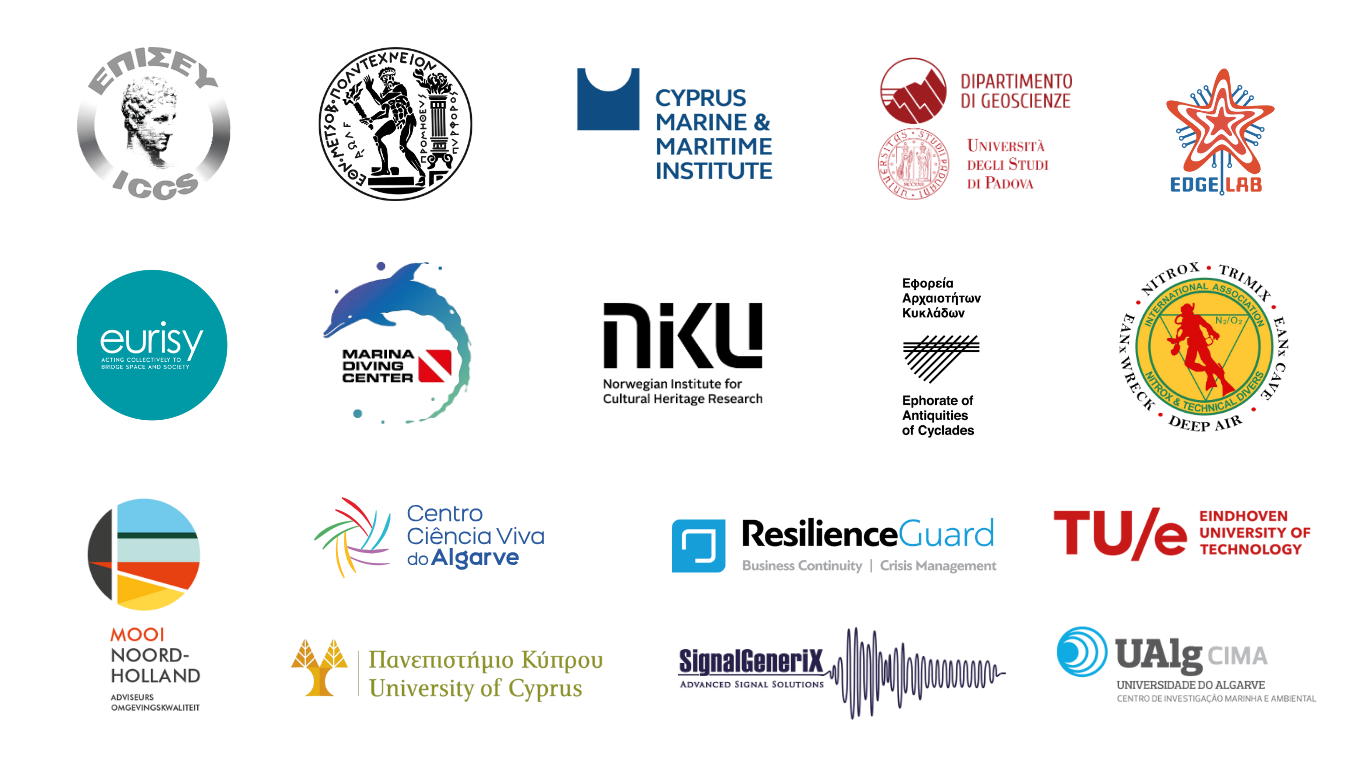
The THETIDA project approaches safeguarding and protecting Europe’s coastal and underwater cultural heritage from the effects of climate change and natural hazards in a holistic manner that includes risk management, protection and preparedness, as complementary strategies to prevent damages to CH sites, identify and ward off additional threats and promote policy tools for climate neutrality and economic resilience in coastal areas.
THETIDA project achieves this goal through the development of a preventive conservation strategy that includes monitoring, risk preparedness and management, for underwater and coastal CH (U&CCH) sites, identify and ward off additional threats and promote adaptation, reconstruction and other post-disruption strategies to restore normal conditions to the historic area, as well as long-term strategic approaches to adapt to CC and to wield policy tools for economic resilience.
In this project, an interdisciplinary team of researchers, experts and practitioners will develop, test and validate an integrated multiple heritage risk assessment and protection system with evidence-based monitoring frameworks, innovative tools and instruments and through participatory processes (Citizens’ Science and Living Labs). The project implementation actions will link the social innovations with cutting-edge technologies (ICT and IoT harmonised tools).
Situated approximately two nautical miles from Riomaggiore at a depth of around 40 meters (44°06’36” N 9°45 03″ E), the Equa was initially intended as a cargo transport vessel but was repurposed as a submarine chaser during the war.
Unfortunately, it met a tragic fate when accidentally struck by a friendly ship, although all crew members were safely rescued. Despite its remarkable preservation, all shipwrecks are subject to eventual decay, gradually blending into the underwater environment.
Factors such as salinity, temperature, and currents can significantly impact the rate of deterioration. However, the Equa’s structure is not expected to undergo significant changes in the near future.
During the summer of 2023, divers from the THETIDA project identified two stressors potentially affecting the Equa’s deterioration:
The name “THETIDA” is inspired by Thetis (Greek: Θέτις), a sea goddess from Greek mythology. Thetis is renowned as a Nereid (sea nymph) and the mother of Achilles. She embodies themes of protection, transformation, and the sea. The project’s name reflects its focus on safeguarding submerged and coastal heritage—both tangible and intangible—from environmental threats.
Europe boasts a diverse underwater heritage, often threatened by climate change, pollution, and natural hazards. To safeguard these wrecks, the European Community has funded the THETIDA project, involving a consortium of 17 organizations across 8 European countries, including EdgeLab.
In the THETIDA project, the U_Tracker®IV, an affordable, compact, and user-friendly Autonomous Underwater Vehicle (AUV), will be utilized. Despite its compact size, U_Tracker®IV maintains high performance capabilities, enabling it to carry out missions typically reserved for larger, more expensive vehicles.
Designed for various applications such as environmental monitoring, archaeological and wreck research, pollution surveillance, and marine research, U_Tracker®IV will be deployed across all seven THETIDA pilot sites. Equipped with Side Scan Sonar, navigation, and communication tools, it will facilitate seabed mapping and the production of 3D models to assess degradation levels.

Funded by the European Commission – HORIZON Europe
HORIZON-CL2-2022-HERITAGE-01 (Research and innovation on cultural heritage and CCIs – 2022)
Project code: 101095253
Project cost: € 3.999.287,50
Project funding: € 3.999.287,50
Project duration: 42 months (01/05/2023 – 31/10/2026)

The THETIDA project has received funding from the European Union's Horizon Europe programme under grant agreement 101095253
Operating Unit:
Via Privata OTO, 10 – 19136 La Spezia (SP) – Italy
Copyright © 2025 EdgeLab S.p.A. – VAT number 01668200494 – All rights reserved.